Medicine glass bottles can be used for packaging various types of pharmaceuticals, such as solids, liquids, and powders. Our pharmaceutical packaging glass bottles include clear, amber, green, blue, black glass bottles. We provide corresponding caps for pharma glass bottles, such as screw caps, corks, glass stoppers, droppers. Common sizes of glass medicine bottles include 5ml, 10ml, 20ml, 50ml, 100ml, 250ml, 500 ml, and 1000 ml.
-
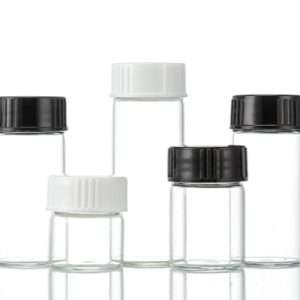
7-25ml Small Glass Vials
Read more -
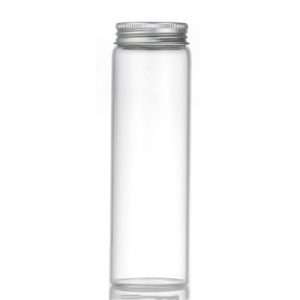
50-260ml Silver Cap Clear Medicine Bottles
Read more -
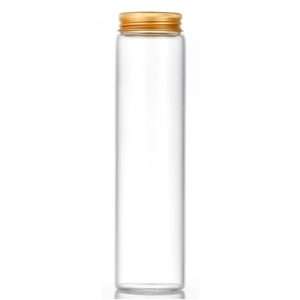
50-260ml Gold Cap Clear Medicine Bottles
Read more -
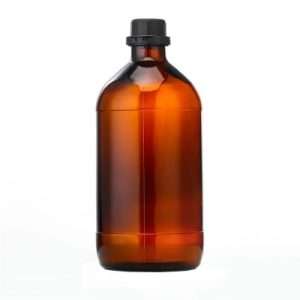
630-2500ml Amber Glass Reagent Bottle
Read more -
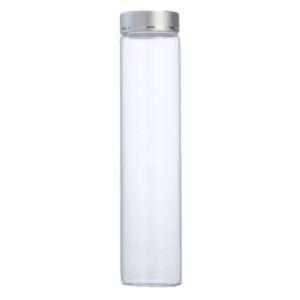
20-180ml Clear Medicine Bottles
Read more -
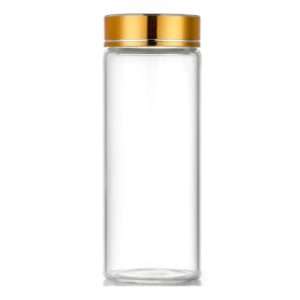
50-260ml Travel Size Medicine Bottles
Read more -

20ml 30ml 50ml Small Syrup Bottles
Read more -
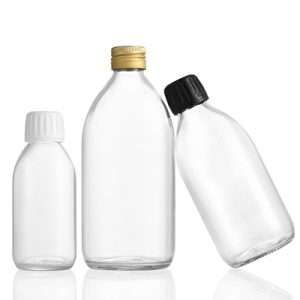
30ml – 500ml Clear Glass Medicine Bottles
Read more -
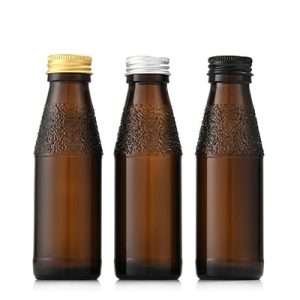
100Ml Cough Syrup Glass Bottles
Read more -
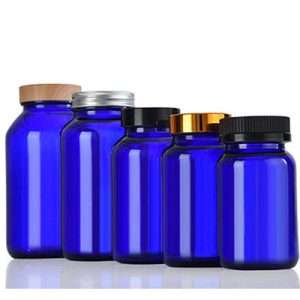
75ml – 500ml Cobalt Blue Medicine Bottles
Read more -

100Ml Medicine Bottles
Read more -
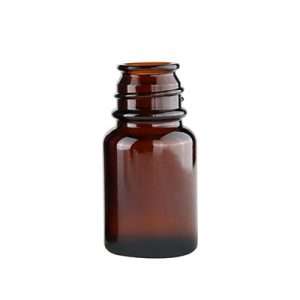
5ml – 250ml Amber Medicine Bottles with Caps
Read more
Medicinal glass bottles have the characteristics of easy sterilization, corrosion resistance, high-temperature resistance, and good sealing performance. Colored glass has light-shielding properties, and brown glass bottles can reduce the transmission of light, and are suitable for packaging of medicines with light-shielding requirements.
Classification of Medicine Glass Bottles
There are many varieties of medicine glass bottles, which can be adapted to different pharmaceutical packaging according to shape, size, diameter, and production process.
Glass Medicine Bottle Shapes
Medicine packaging glass bottles are classified by shape and can be divided into round glass bottles, square glass bottles, and flat glass bottles.
- Boston round glass bottles are the most common type and are suitable for various liquid and solid types of pharmaceutical packaging.
- Square glass reagent bottles are suitable for packaging powders, pill, liquid medicine, etc.
- Flat glass bottles are suitable for packaging liquid medicines, such as injections.
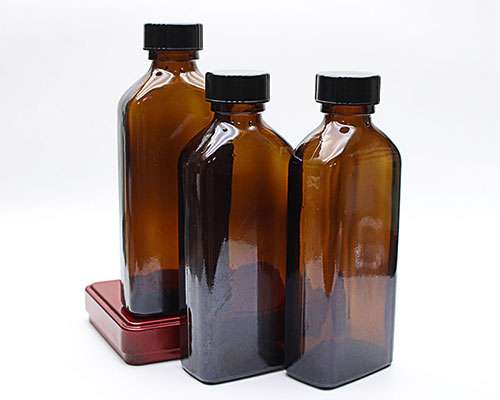
Glass Bottle Diameters
Pharma Packaging is divided into small-diameter and large-diameter glass pharmaceutical bottles according to diameter.
- Small-diameter glass bottles are suitable for packaging solid pharmaceuticals, such as powders and granules.
- Glass bottles with large diameters are suitable for packaging liquid medicines, such as liquid medicine bottles.
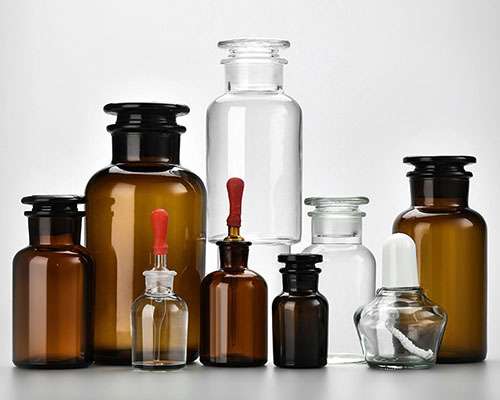
Medicine Bottle Sizes
Pharmaceutical packaging glass bottles are classified according to capacity and can be divided into small-capacity, medium-capacity and large-capacity glass bottles.
- Small glass bottles for medicine usually have a capacity of less than 5ml and are suitable for packaging high-value pharmaceuticals, such as cosmetic essence, essential oil, perfume oil.
- Medium-capacity medicine glass bottles usually have a capacity between 10ml and 100ml, and are suitable for packaging general pharmaceuticals.
- Large glass medicine bottles usually have a capacity of more than 100ml and are suitable for the industrial production of pharmaceutical packaging.
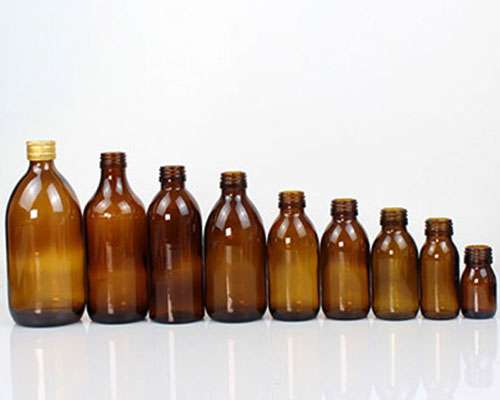
Glass Bottle Production Process

According to the manufacturing process of pharmaceutical glass bottles, they are mainly divided into molded bottles and controlled bottles.
- Molded bottles are made by molding molten glass into glass medicine bottles.
- Tube bottles are made of glass tubes into a certain shape using thermal processing forming equipment.
Difference between Medicinal Glass Materials
According to the difference in linear thermal expansion coefficient and boron trioxide content, combined with glass performance requirements, medicinal glass materials are divided into four categories: high borosilicate glass, medium borosilicate glass, low borosilicate glass and soda-lime glass.
High Borosilicate Glass Material
The B2O3 content of high borosilicate glass is greater than 12%, the average linear thermal expansion coefficient is about (20-300℃) 3.3×10-6K-1, and its thermal shock resistance and water resistance are the best.
However, since the processing from glass tubes to pharmaceutical glass products requires higher temperatures, its application as pharmaceutical glass is limited.
Medium Borosilicate Glass Material
The B2O3 content of medium borosilicate glass is 8%~12%, and the average linear thermal expansion coefficient is approximately (20-300℃) 5.0×10-6K-1. Due to its excellent thermal shock resistance and water resistance, it is widely used in the packaging of various injections, blood, vaccines and other medicines.
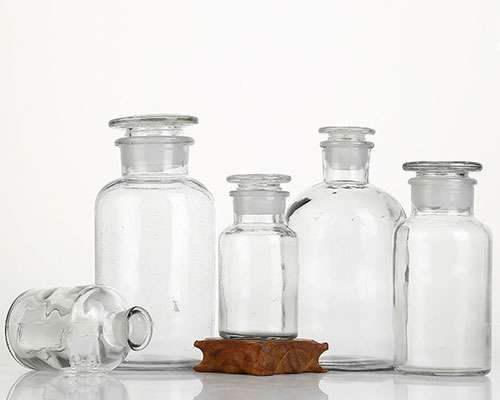
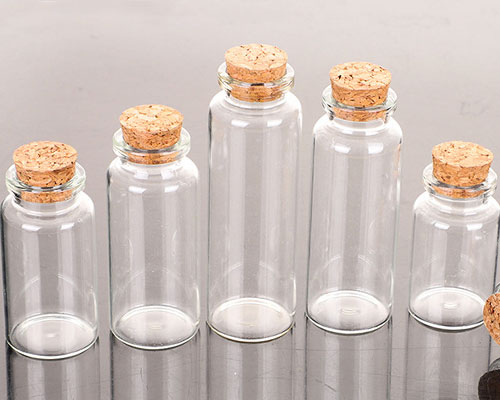
Low Borosilicate Glass Material
The B2O3 content of low borosilicate glass is 5%~8%, and the average linear thermal expansion coefficient is approximately (20-300℃) 7.3×10-6K-1. The thermal shock resistance of low borosilicate glass is lower than that of medium borosilicate glass. Although its 121℃ particle water resistance can reach level 1, its inner surface water resistance does not necessarily reach HC1 level, and its water resistance is weaker than medium borosilicate glass.
This type of low borosilicate glass material can be used to store medicines that do not require high chemical stability, such as common antibiotic powder injections and oral liquids. However, it is difficult to satisfy acidic and alkaline medicines.
Soda-lime Glass Material
The B2O3 content of soda-lime glass is less than 5%, and its water resistance and thermal shock resistance are poor. Its stability is generally improved through internal surface treatment.
However, the cleaning process of soda-lime glass can easily damage the silicon-rich layer on the inner surface, resulting in glass detachment. Therefore, soda-lime glass bottles with inner surface treatment are generally suitable for disposable infusion bottles or oral liquid bottles.
Medicinal glass is a kind of medical packaging material and is often used for packaging injections, oral medications, health products, etc. In terms of process technology, the higher the water resistance of pharmaceutical glass, the better the safety and stability of the stored pharmaceuticals. Among them, neutral borosilicate glass has the advantages of small expansion coefficient, high mechanical strength, and good chemical stability, and is internationally recognized as a better pharmaceutical packaging material.
